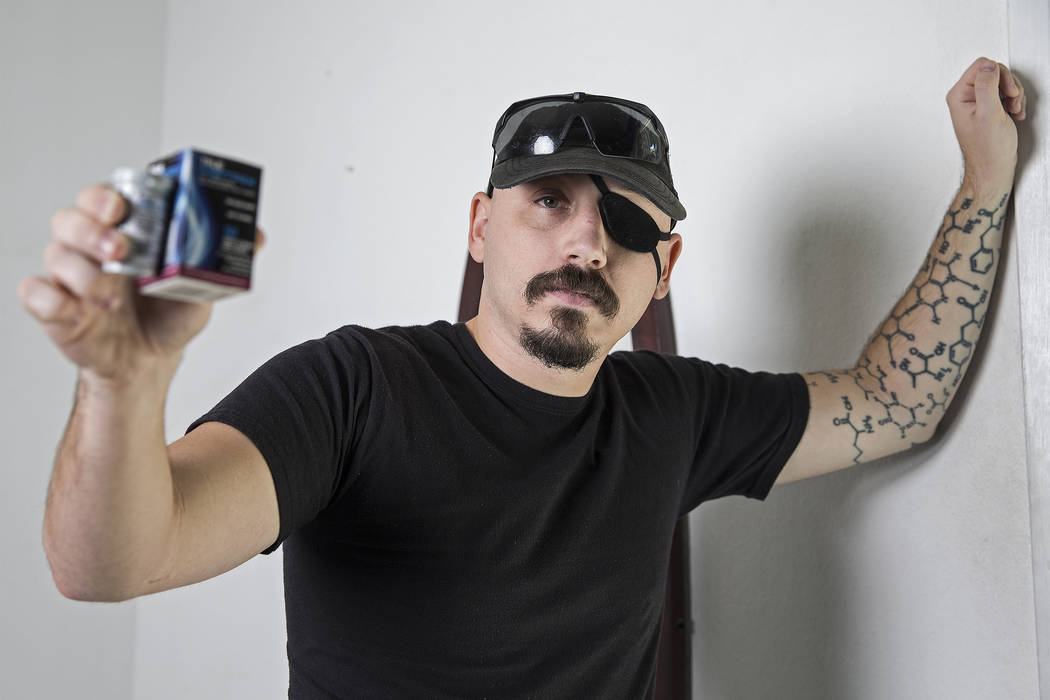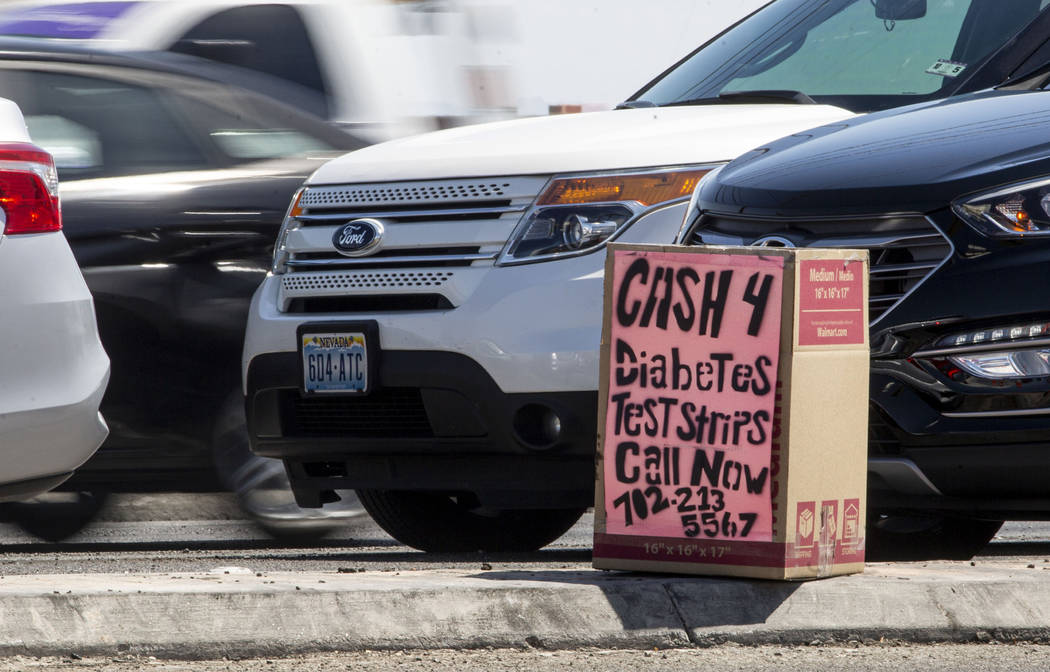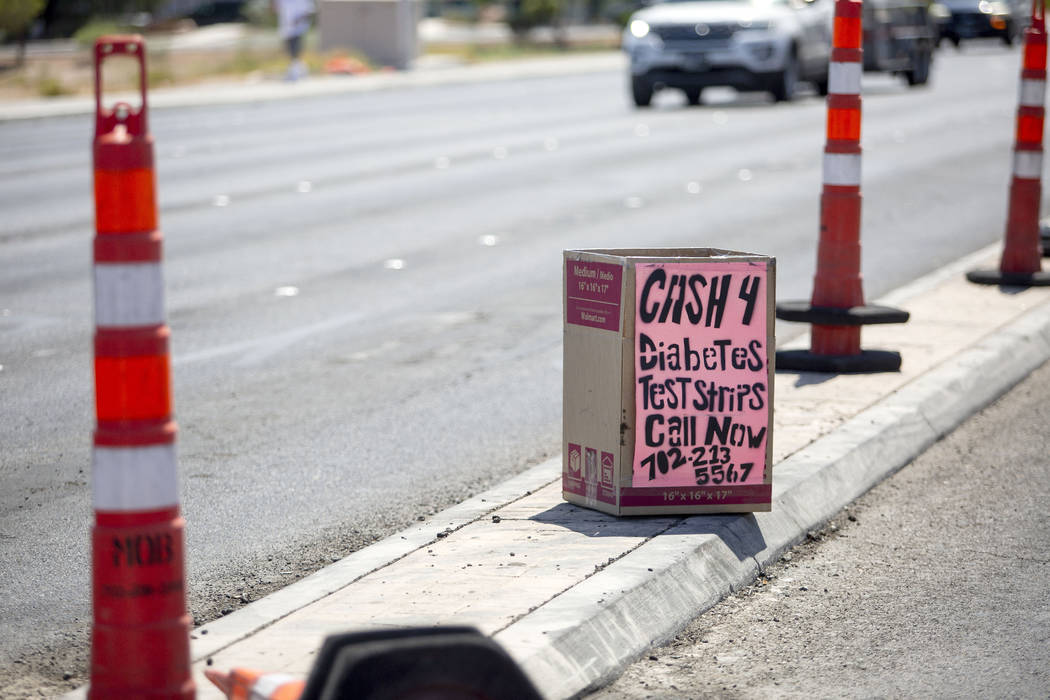Unregulated market emerges for sale of diabetic test strips
Becoming temporarily blind in 2015 was Robert Hoey’s wake-up call to take control of his Type 1 diabetes.
Hoey, 33, learned the hard way that his retinas could hemorrhage if his blood sugar gets too high. Now he’s diligent in monitoring his glucose levels to make sure they stay within a safe range.
But Hoey has a significant hurdle in accessing diabetic test strips — the medical devices he and millions of other Americans rely on to measure their glucose levels multiple times a day. Medicaid will only pay for him to receive 100 test strips a month, and Hoey typically uses anywhere from 180 to 210.
To alleviate the steep cost of buying over the counter, Hoey said he often purchases the remaining test strips he needs from what experts describe as a mostly unregulated — and potentially dangerous — gray market of entrepreneurs flipping pre-owned test strips.
“Every time I’ve gone to buy it’s never an official company. It’s just somebody in their home with a huge stockpile (of test strips) on their desk,” Hoey said. “It’s really shady in my opinion, but I can’t say that it’s terrible.”
Hoey is far from alone, said Nevada Diabetes Association executive director Sara Gleich. It was more than a decade ago when she first noticed that the nationwide trend of buying and selling pre-owned test strips had come to Nevada, where the American Diabetes Association estimates about 280,000 diabetics live today.
Gleich said the cost of test strips has skyrocketed in recent years. A brand-name box of 100 single-use strips often sells for more than $100 at retail, and it’s not uncommon for some diabetics to use as many as 10 strips a day.
For the uninsured and underinsured, she said, “the cost is astronomical.”
Sales raise concerns
While some diabetics have trouble obtaining enough test strips each month, others are prescribed more than they will use. Sometimes families inherit a stockpile of unused test strips after the death of a diabetic relative.
These unwanted test strips have value. And because they’re medical devices, not medication, reselling them is not illegal as long as they weren’t originally obtained through a government health care program.
Still, the practice has raised concerns among health care professionals in Nevada.
The chemical mixture on a test strip used to measure blood sugar can be damaged by heat or moisture. And unlike with licensed pharmacies, the Nevada State Board of Pharmacy does not regularly inspect flippers’ operations to ensure products are being properly stored. There’s also the potential of expired or counterfeit test strips being sold, said Paul Edwards, general counsel for the state’s pharmacy board.
In April, the U.S. Food and Drug Administration issued a warning that using pre-owned test strips could result in inaccurate blood-sugar readings. Diabetics whose blood sugar dips too low can suffer seizures or comas, and a sustained high blood sugar level can lead to a myriad of health problems over time.
“There’s a big risk buying through a gray market,” said Dr. Kenneth Izuora, director of the UNLV Medicine Diabetes Center. “Once (the test strip) gets to the consumer and it goes back into the market there’s no way to make sure the chain of preservation is maintained.”
Gleich said she can still see value in reselling if it helps people like Hoey get strips at a price they can afford.
“People want to test. They know they feel better,” she said. “There is a solution, so now the market is driving itself that way.”
Advertisements everywhere
Evidence of the flipping market’s presence in Las Vegas can be seen in advertisements everywhere from local classifieds to street corners to online listings.
Amid orange traffic cones at a North Las Vegas intersection, a message painted on a cardboard box offers “Cash 4 Diabetes Test Strips.” Almost 30 local postings have been made to Craigslist about buying test strips since the start of August.
Las Vegas accountant Robert O’Berry, 68, said he became interested in flipping pre-owned test strips after a client told him he was making enough money doing it to pay off his mortgage and send two of his children through private school.
“I saw the proof,” O’Berry said. “I’m not going to make that kind of money, but I can make some money.”
O’Berry said he uses Craigslist to meet people who want to sell their test strips. He plans to eventually sell in bulk to larger companies, which in turn will sell the test strips to retail pharmacies.
On Thursday, he pulled a spreadsheet out of a manila envelope of research about test strip flipping that he keeps at his office. It showed he could resell the strips he buys anywhere from $6 to $74 a box, depending on the brand, expiration date and condition of packaging.
O’Berry said he’d probably pay $40 max for a box he could sell for $74. He thinks business will pick up around the holidays, when people are looking to get extra cash, and he hopes to eventually gross about $2,000 a month.
“I’ve got a connection. All I need to do is get an inventory,” he said. “You’ll make money dealing with the resale, but you make real money when you get to the big boys.”
Other flippers were more secretive. In a short phone conversation, another buyer advertising on Craigslist said she didn’t want to speak about her business.
“The manufacturers and insurance companies would be all over us,” she said. “They don’t love us.”
Contact Michael Scott Davidson at sdavidson@reviewjournal.com or 702-477-3861. Follow @davidsonlvrj on Twitter.

























